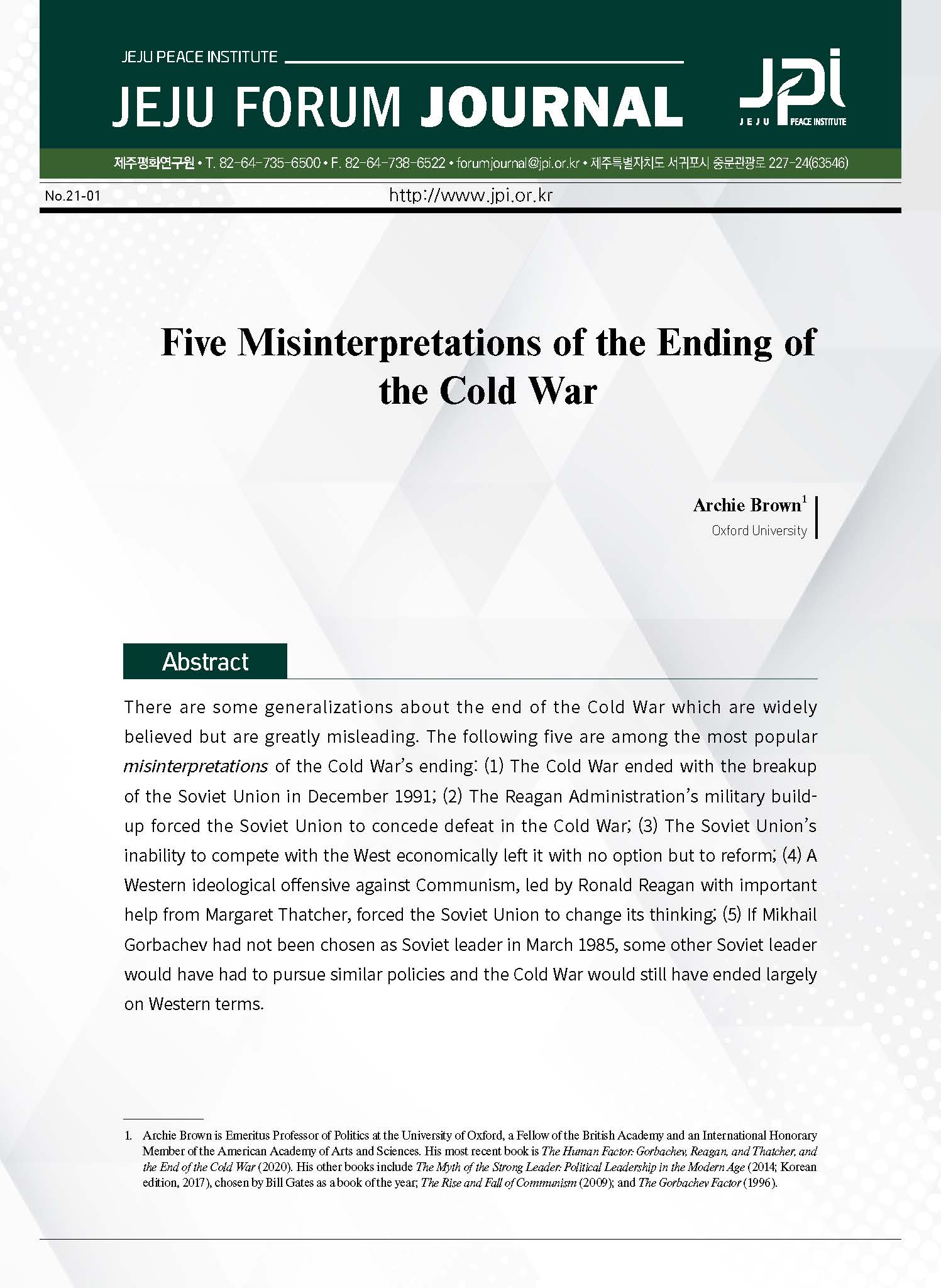There are some generalizations about the end of the Cold War which are widely believed but are greatly misleading. The following five are among the most popular misinterpretations of the Cold War’s ending: (1) The Cold War ended with the breakup of the Soviet Union in December 1991; (2) The Reagan Administration’s military buildup forced the Soviet Union to concede defeat in the Cold War; (3) The Soviet Union’s inability to compete with the West economically left it with no option but to reform; (4) A Western ideological offensive against Communism, led by Ronald Reagan with important help from Margaret Thatcher, forced the Soviet Union to change its thinking; (5) If Mikhail Gorbachev had not been chosen as Soviet leader in March 1985, some other Soviet leader would have had to pursue similar policies and the Cold War would still have ended largely on Western terms.
저자
Archie Brown is Emeritus Professor of Politics at the University of Oxford, a Fellow of the British Academy and an International Honorary Member of the American Academy of Arts and Sciences. His most recent book is The Human Factor: Gorbachev, Reagan, and Thatcher, and the End of the Cold War (2020). His other books include The Myth of the Strong Leader: Political Leadership in the Modern Age (2014; Korean edition, 2017), chosen by Bill Gates as a book of the year; The Rise and Fall of Communism (2009); and The Gorbachev Factor (1996).
